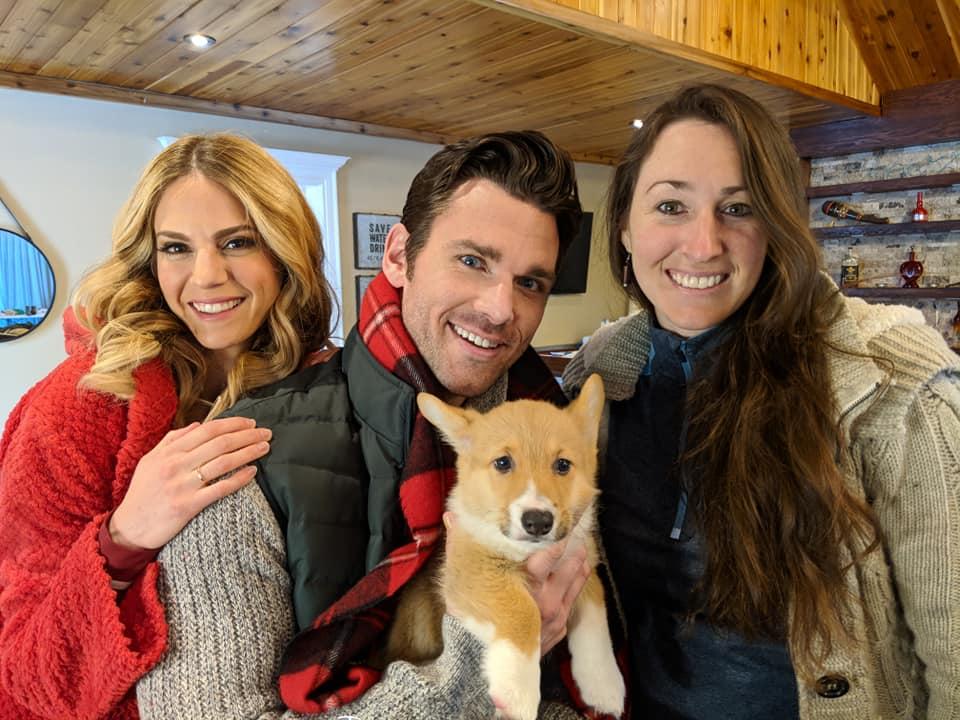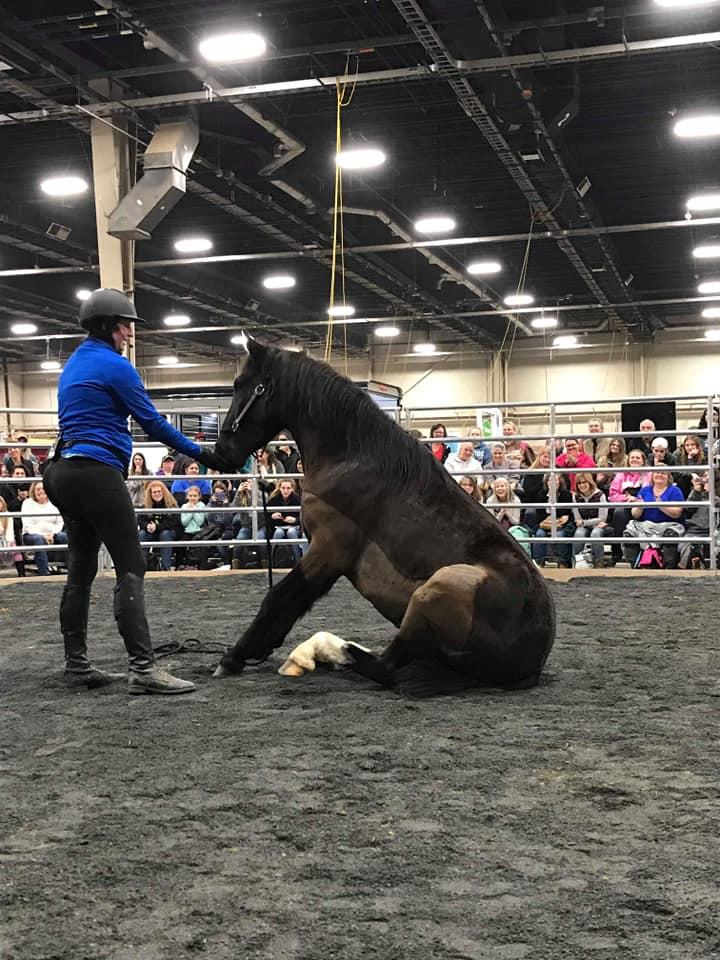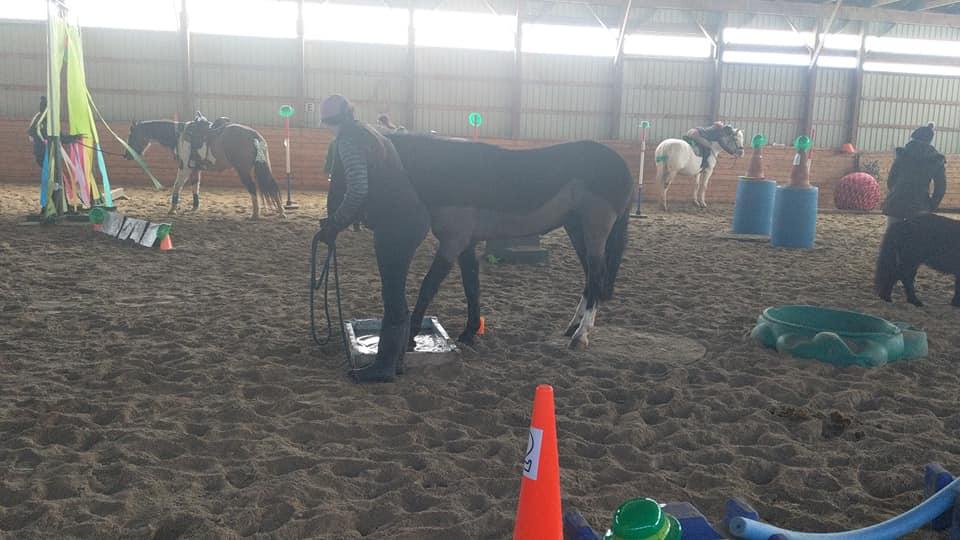
The Power of Patience: Horsemanship with Lindsey Partridge
We’re pleased to kick off a new monthly blog series with training and horsemanship rising star Lindsey Partridge. In her inaugural column, Lindsey details exactly why patience is so powerful in training.
Hello Horse Nation! Welcome to my first blog post. For those of you that don’t know me, my name is Lindsey Partridge. I’m a three-time discipline champion at the Retired Racehorse Project’s Thoroughbred Makeover, a Level 2 Centered Riding Instructor, founder of Harmony Horsemanship, an Extreme Cowboy Champion, Jumper Champion, a horse trainer for feature films, and I’m the chick that took that grey Thoroughbred into the hotel.
I’m excited to be here on Horse Nation! When I was thinking about this past month and what I wanted to write about, I couldn’t really decide. March has been a crazy month for me — I was at Horse World Expo in Pennsylvania doing demos and performing in their Equus Theatre show with my Thoroughbred Trivia Time doing our “Extreme Bridleless” performance, had my Corgis and horse Dreamer star in the film A Very Corgi Christmas which will come out later this year (seriously, it’s going to be the cutest movie ever made), went to New York and North Carolina for Harmony Horsemanship workshops, and took my mustang Arwin that I’m training for the Mustang Makeover and my Thoroughbreds for the 2019 Makeover on some adventures…. oh yeah, and I survived my fifth month of pregnancy.
In the end I realized there was a common theme that kept creeping up: patience.
On my travels I see it happen all the time that people ask their horse to do something, and for whatever reason they switch tactics or give up. When I was at Horse World Expo on the last day, there was a girl out there trying to load her horse literally for over three hours… and then she gave up. During those three hours, she tried so many methods — rope behind the horse’s bum, treats in a bucket, backing the horse up the ramp, pulling on the horse, tapping the horse with a whip, and who knows what else.
I’ve also had some circumstances where I may have been tempted to switch my tactics or give up — but I have learnt that there is a lot of power in patience.
Here’s the thing — if you give up or switch tactics too soon, you are just telling your horse that you were wrong. You were wrong to ask your horse to do the task, your were wrong about how you asked the horse to do the task, and your horse probably should think about doubting you more in the future because you were wrong this time and probably will be again.
That’s not a very good message to give your horse.
What we need to remember is that there are four reasons a horse says no:
- They are scared
- They don’t understand
- They don’t want to
- They can’t
Depending on which reason your horse says no will dictate how you react:
- If they are scared – just wait
- If they don’t understand – then clarify
- If they don’t want to – motivate them
- If they can’t – then adjust the task
It’s when horses are scared or don’t want to that I see people giving up and switching tactics too soon. There is so much power in patience.
The crazy thing, often when I time someone for how quickly they give up, it’s usually only been a couple of minutes. That’s really not a lot of time considering we are two completely different species with different languages trying to establish trust and understanding.
I had three very different experiences in March where I just needed to be patient and confident in what I was asking of my horse to get the result I wanted. In the end I had my horses doing what I wanted, and better yet, they are less likely to doubt me in the future. This is part of the reason why I’m able to take off the track Thoroughbreds, wild mustangs, or “second chances” horses that are given to me and end up doing liberty in the city or ride bridleless cross country, among other things that people sometimes think are impossible.
My three experiences of patience this month:
Arwin didn’t like the water box. Arwin is my mustang that I am training for a Mustang Makeover that takes place next month at Midwest Fair in Wisconsin. I took him to a Gambler’s Choice obstacle show and during the class we went through a water box. He had never done a water box before and wasn’t expecting water in the box so it startled him. After our class I had time to go back and practice it. He really did not want to do it and tried really hard to avoid it. Patience was key. This video is in my Connection Club but I’m also sharing it with you here.
Fairly didn’t want to get off the trailer. Fairly is one of my Thoroughbreds for the 2019 Makeover and I took her on a road trip with me to New York and North Carolina. Most people have issues with their horse getting on the trailer… but I am the weirdo that arrived in North Carolina at midnight and my horse wouldn’t get off the trailer. As in, we waited an hour and a half and decided we needed to go to bed and would tackle that problem in the morning. It took a lot of patience and a bit of adjusting (we backed the trailer up to a hill so the step down was less severe). This video is available in my Connection Club.
Kalila learnt to lay down. Kalila is my four-year-old APHA mare that I had been working on teaching to lay down. I had done about ten sessions or so prepping her for the task– teaching her to lower her head and think down. Then came the day to learn the task. It took some patience and being confident that she was ready. In the end she was able to lay down. This video is also in my Connection Club.
A lot of times people want to add more pressure or force to horses, but the problem is that more pressure can create anxiety, stress, and fear. This leads to our horses carrying tension. Just imagine if you were the one that was learning something new and you weren’t feeling confident — would it really help if someone started yelling at you or threatened to hit you? How would that make you feel about your “teacher?”
There is so much power in patience — if you know the task you are asking your horse to do is reasonable, and you know the method you are asking your horse is fair and understandable then just wait.
If you are consistent with being patient, your horse will begin to trust you sooner and you won’t have to wait so long for them to follow your direction. The best part — you can avoid a lot of dangerous behaviour because you won’t provoke your horse to desperate measures of saying no. That’s why we call Harmony Horsemanship the 8-80 program. Because you can be eight years old or 80 years old and still be effective… you aren’t relying on muscle power to get the training done.
Better yet, your horse will start to trust you and they will like you as a teacher. Think about the best teachers in your life… the ones that you were excited to go to class and learn with. I’m sure they had lots of great qualities, one of them being they were patient with you.
Lindsey Partridge is the founder of Harmony Horsemanship and three-time discipline champion at the Retired Racehorse Project’s Thoroughbred Makeover. Follow her @LindseyPHH or visit www.LindseyPartridge.com.










Leave a Comment